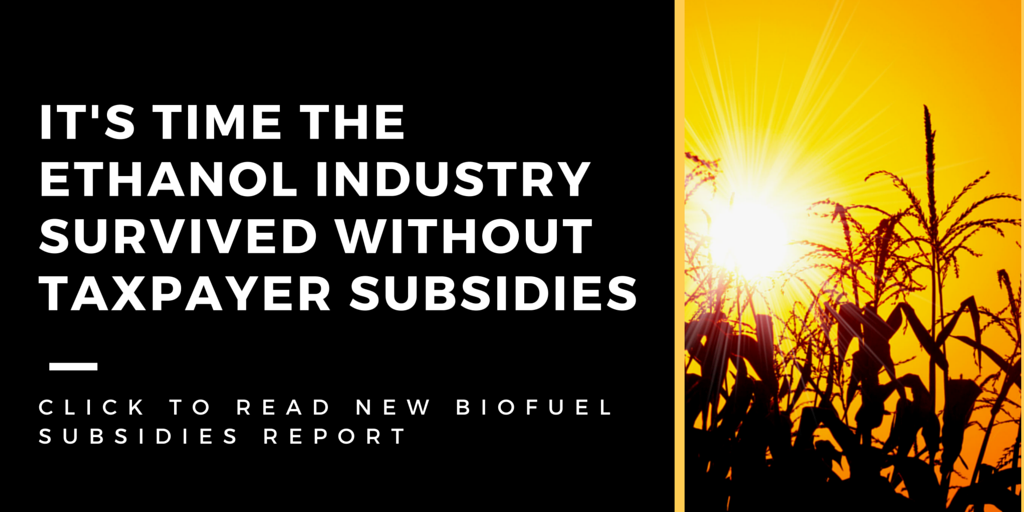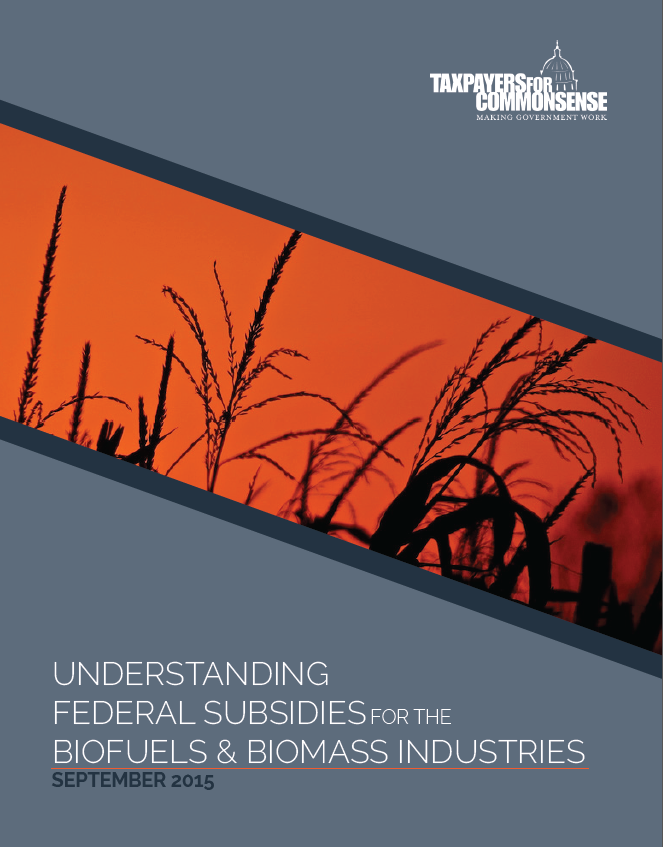Click HERE to view the full report.
Since its creation of the domestic market for corn ethanol after the energy crisis of the 1970s, the federal government has nurtured and maintained the ethanol industry with a steady stream of subsidies. Biofuels and biomass sources were originally sold as a way to help achieve U.S. energy independence, reduce greenhouse gas emissions, and spur rural economic development. The federal government has propped up the biofuels and biomass industries – primarily the mature corn ethanol industry – through billions in subsidies, special interest tax breaks, taxpayer-backed loan guarantees, and a variety of other supports for blender pumps and other infrastructure. Biofuels enjoy a guaranteed market as their production is mandated by the federal government through the Renewable Fuel Standard (RFS).
However, the next generation of biofuels and bioenergy has failed to meet its lofty expectations. Unintended consequences of increased corn demand have included higher food and feed costs, greater greenhouse gas emissions, and the conversion of millions of acres of native grasslands, wetlands, and other sensitive land to corn and other commodity crop acres. Biofuel and biomass subsidies have allowed the federal government to pick winners and losers, distorted energy and agriculture markets, and contributed to expansion and overproduction of certain types of bioenergy.
After more than 30 years of federal backing for certain biofuels such as corn ethanol, the federal government should be scaling back – not expanding – its role in subsidizing the long supply chain of biofuels production. It’s time the biomass and biofuels industries survived without taxpayer support.
To read the full report, click HERE.
To read more about ethanol and biofuel subsidies, click HERE.












